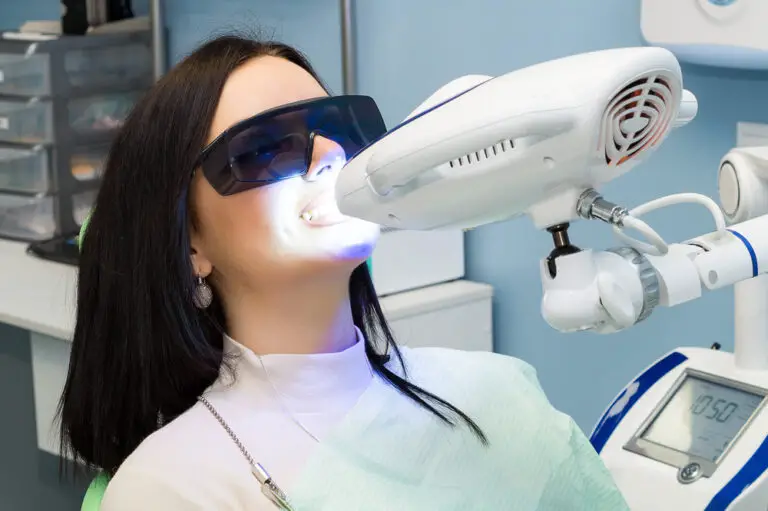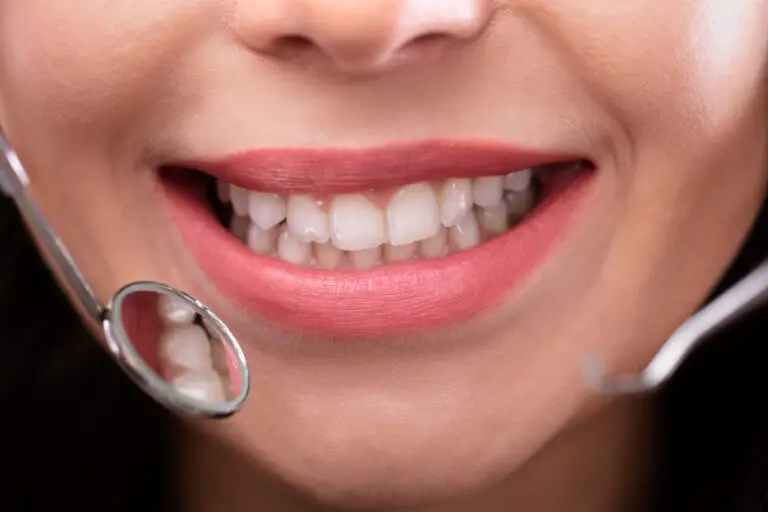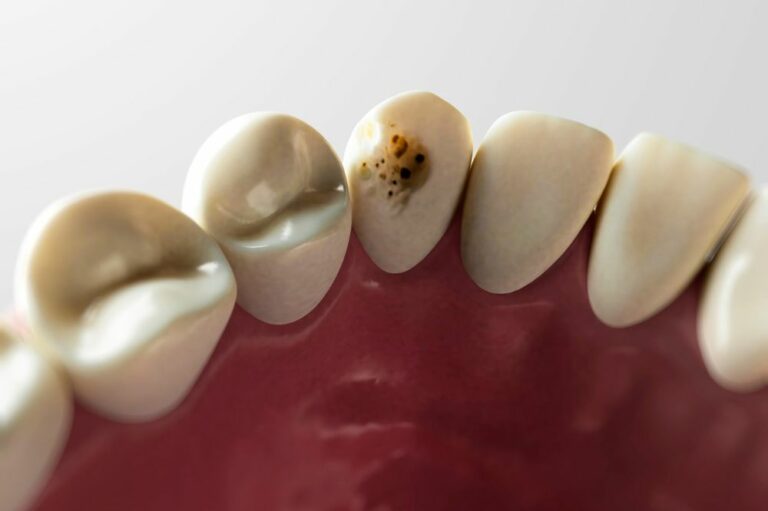If you’re experiencing loose teeth, it’s important to address the issue as soon as possible. Not only can loose teeth be uncomfortable, but they can also be a sign of underlying dental issues. Fortunately, there are steps you can take to strengthen your gums and tighten loose teeth.
One of the most important things you can do to improve your gum health is to maintain good oral hygiene. This includes brushing your teeth twice a day and flossing daily. Choosing the right toothbrush and toothpaste can also make a difference. Look for products that are specifically designed to improve gum health and strengthen teeth.
In addition to good oral hygiene, there are other lifestyle changes you can make to support healthy gums and teeth. Limiting sugary, sticky, or starchy foods can help reduce the amount of bacteria in your mouth, which can lead to tooth decay and gum disease. Avoiding cigarettes and tobacco products can also help improve your oral health. If you’re experiencing loose teeth, it’s important to consult with a dentist to determine the underlying cause and develop an appropriate treatment plan.
Understanding the Importance of Gum Health
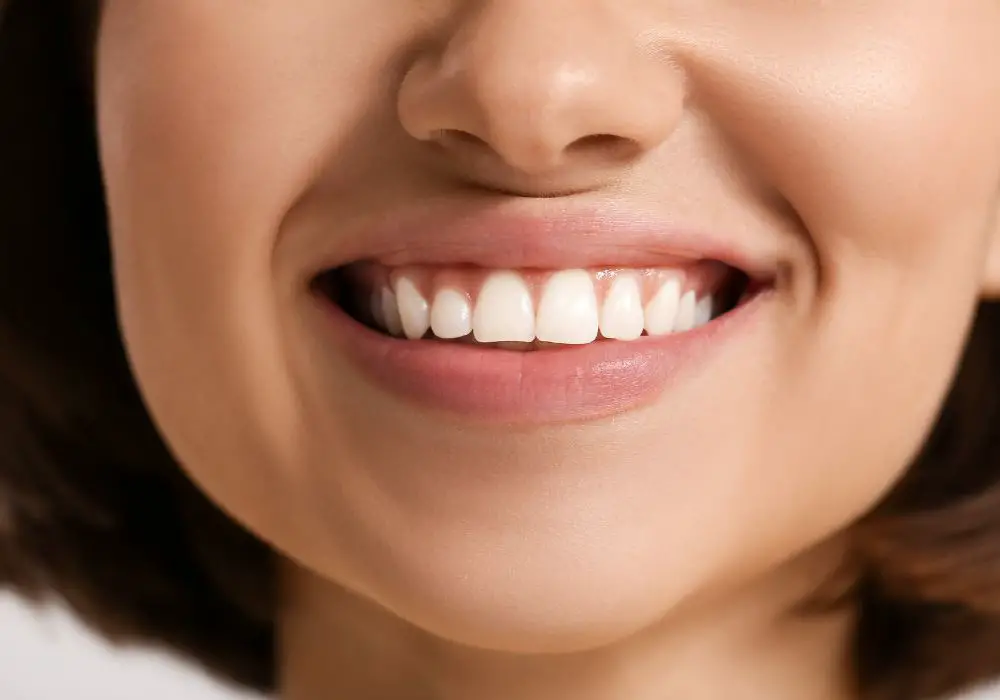
Your gums play a crucial role in maintaining your oral health. They hold your teeth in place, protect the roots of your teeth, and act as a barrier to prevent bacteria from entering your bloodstream. Neglecting your gum health can lead to a host of dental problems, including tooth decay, gum disease, and tooth loss.
One of the primary reasons for gum disease is the buildup of plaque, a sticky film of bacteria that forms on your teeth. When plaque is not removed through regular brushing and flossing, it can harden into tartar, which can only be removed by a dental professional. Tartar buildup can lead to inflamed and bleeding gums, which are the early signs of gum disease.
Gum disease can progress to a more severe form called periodontitis, which can cause irreversible damage to your gums and the bone that supports your teeth. In advanced cases, periodontitis can lead to tooth loss.
Maintaining healthy gums is essential to prevent gum disease and other oral health problems. Here are some tips to keep your gums healthy:
- Brush your teeth twice a day with a fluoride toothpaste and a soft-bristled toothbrush. Brushing properly removes plaque from your teeth and gums.
- Floss daily to remove plaque and food particles from between your teeth and gums.
- Use an antiseptic mouthwash to kill bacteria and freshen your breath.
- Eat a healthy diet that is rich in vitamins and minerals, especially vitamin C, which helps to strengthen your gums.
- Avoid smoking and using tobacco products, as they can increase your risk of gum disease.
- Visit your dentist regularly for checkups and professional cleanings.
By taking care of your gums, you can prevent gum disease, maintain healthy teeth, and improve your overall oral health.
Identifying Loose Teeth
If you are experiencing a loose tooth, it is important to identify the cause in order to properly treat it. Here are some signs to look out for:
- Pain or discomfort when chewing or biting down
- Tooth mobility or movement
- Changes in the alignment of your teeth
- Bleeding gums
- Swollen or tender gums
- Bad breath or a bad taste in your mouth
If you notice any of these symptoms, it is important to schedule an appointment with your dentist as soon as possible. They can properly diagnose the cause of your loose tooth and recommend the appropriate treatment.
Common causes of loose teeth include gum disease, injury or trauma to the tooth, and teeth grinding or clenching. Your dentist may recommend a deep cleaning or scaling and root planing to treat gum disease. They may also recommend a mouth guard to protect your teeth if you grind or clench your teeth.
In some cases, a loose tooth may require more extensive treatment such as a root canal or tooth extraction. It is important to address a loose tooth promptly to prevent further damage or tooth loss.
Effective Oral Hygiene Practices

Maintaining good oral hygiene is essential for healthy gums and teeth. Here are some effective oral hygiene practices that you can follow:
Proper Brushing Techniques
Brush your teeth twice a day for two minutes each time. Use a soft-bristled brush and fluoride toothpaste. Brush gently in circular motions and make sure to reach all areas of your mouth, including your tongue. Avoid brushing too hard as it can damage your gums and tooth enamel.
Importance of Flossing
Flossing is an important part of oral hygiene that helps remove food particles and plaque from between your teeth and along the gum line. Use about 18 inches of floss, wrap it around your fingers, and gently slide it between your teeth. Curve the floss around the base of each tooth and move it up and down to remove plaque and debris. Floss at least once a day.
Mouth Rinse Choices
Mouthwash can help kill bacteria and freshen your breath. Choose an alcohol-free mouthwash that contains fluoride and has been approved by the American Dental Association (ADA). Mouthwash should not be used as a substitute for brushing and flossing, but as an additional step in your oral hygiene routine.
By following these effective oral hygiene practices, you can strengthen your gums and tighten your loose teeth. Remember to visit your dentist regularly for dental X-rays, exams, and cleanings to maintain good oral health.
Nutrition for Strong Gums
If you’re looking to strengthen your gums and tighten your loose teeth, paying attention to your diet can make a big difference. Here are some key nutrients and foods to focus on:
Vitamin C and D
Vitamin C is essential for the production of collagen, a structural protein that is a key component of your gums. Without enough vitamin C, your gums may become weak and more susceptible to disease. Good sources of vitamin C include citrus fruits, strawberries, kiwi, and bell peppers.
Vitamin D is also important for gum health, as it helps your body absorb calcium, a mineral that is crucial for strong teeth and bones. You can get vitamin D from sunlight, fatty fish, and fortified foods like milk and cereal.
Calcium-Rich Foods
Calcium is another mineral that is vital for strong teeth and gums. It helps to build and maintain tooth enamel, which is the hard outer layer of your teeth. Good sources of calcium include dairy products like milk, cheese, and yogurt, as well as leafy greens like kale and spinach.
Avoiding Sugar and Acidic Foods
Sugar and acidic foods can both be damaging to your teeth and gums. Sugar feeds the bacteria in your mouth, which can lead to tooth decay and gum disease. Acidic foods, like citrus fruits and soda, can erode your tooth enamel over time.
To protect your gums, try to limit your intake of sugary and acidic foods. Instead, focus on whole foods like fruits, vegetables, and lean proteins. If you do indulge in sugary or acidic treats, be sure to brush your teeth or rinse your mouth with water afterwards to help reduce the damage.
By incorporating these key nutrients and foods into your diet, you can help strengthen your gums and improve your overall oral health.
Professional Dental Care
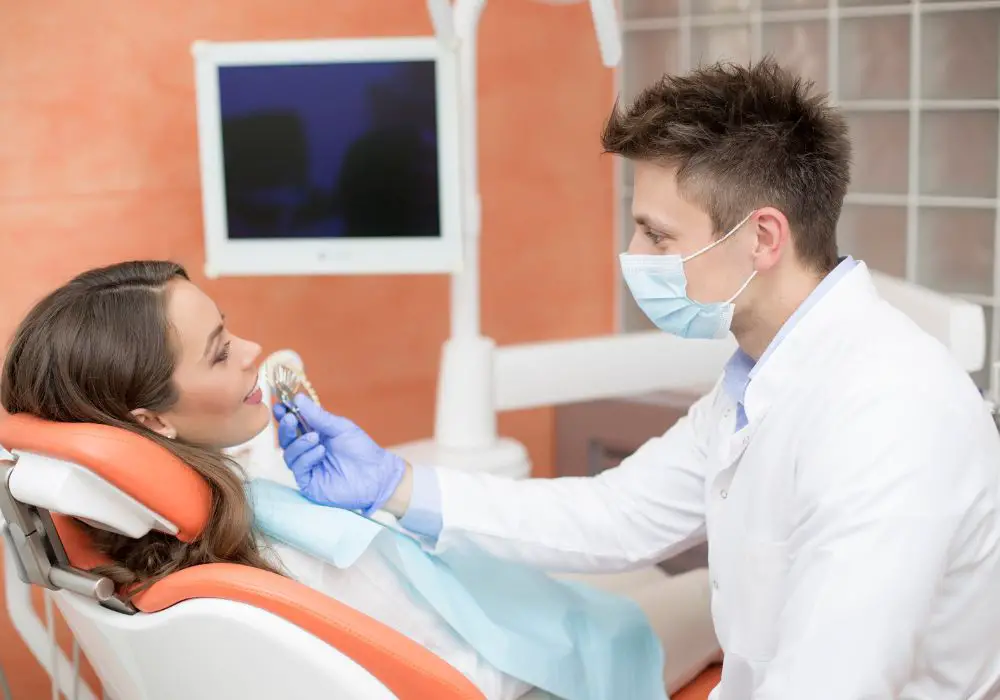
Taking care of your gums and teeth is important, and professional dental care is an essential part of maintaining good oral health. Regular check-ups and deep cleaning procedures can help prevent and treat gum disease, which can cause loose teeth.
Regular Check-ups
Regular dental check-ups are important for maintaining healthy teeth and gums. During a check-up, your dentist will examine your teeth and gums for any signs of disease or decay. They may also take x-rays to check for any hidden problems.
If your dentist detects any issues, they will recommend a treatment plan to address the problem. This may include deep cleaning procedures or other treatments to strengthen your gums and tighten your loose teeth.
Deep Cleaning Procedures
Deep cleaning procedures, also known as scaling and root planing, are a common treatment for gum disease. During this procedure, your dentist or hygienist will remove plaque and tartar from your teeth and gums, including below the gumline.
After the plaque and tartar have been removed, your dentist will smooth the roots of your teeth to help your gums reattach to your teeth. This can help tighten loose teeth and prevent further damage to your gums.
In some cases, your dentist may also recommend antibiotics or other medications to help treat gum disease. It’s important to follow your dentist’s instructions and attend all follow-up appointments to ensure the best possible outcome.
Remember, taking care of your gums and teeth is essential for maintaining good oral health. Regular check-ups and deep cleaning procedures can help prevent and treat gum disease, which can cause loose teeth. If you’re experiencing any issues with your gums or teeth, be sure to schedule an appointment with your dentist as soon as possible.
Lifestyle Modifications
If you want to strengthen your gums and tighten your loose teeth, making some lifestyle changes can help. Here are two lifestyle modifications that can make a big difference:
Quitting Smoking
Smoking is one of the biggest risk factors for gum disease, which can lead to loose teeth. If you smoke, quitting is one of the best things you can do for your oral health. When you quit smoking, your body will start to heal itself, and your gums will become healthier.
Reducing Stress
Stress can also contribute to gum disease. When you’re stressed, your body produces more of the hormone cortisol, which can affect your immune system and make it harder for your body to fight off infections. To reduce stress, try practicing relaxation techniques like deep breathing, meditation, or yoga. You can also try getting more exercise, spending time outdoors, or talking to a therapist or counselor.
By making these lifestyle modifications, you can help strengthen your gums and tighten your loose teeth. Remember to also maintain good oral hygiene habits, such as brushing twice a day, flossing daily, and visiting your dentist regularly for checkups and cleanings.
Natural Remedies
If you’re looking for natural ways to strengthen your gums and tighten your loose teeth, there are a few remedies that you can try. Here are some natural remedies that may help you improve your gum health.
Oil Pulling
Oil pulling is an ancient Ayurvedic practice that involves swishing oil in your mouth for a few minutes. It is believed to help remove toxins from your mouth and improve oral health. You can use coconut oil, sesame oil, or olive oil for oil pulling.
To practice oil pulling, take a tablespoon of oil and swish it around in your mouth for 15-20 minutes. Spit it out and rinse your mouth with warm water. Do this once a day, preferably in the morning, on an empty stomach.
Green Tea
Green tea is rich in antioxidants and has anti-inflammatory properties that can help improve your gum health. It can also help reduce the risk of gum disease.
To use green tea as a natural remedy, brew a cup of green tea and let it cool down. Use it as a mouthwash and swish it around in your mouth for 30 seconds to a minute. Spit it out and rinse your mouth with water.
Aloe Vera
Aloe vera has anti-inflammatory and antibacterial properties that can help reduce gum inflammation and prevent gum disease. It can also help promote healing of damaged gum tissue.
To use aloe vera as a natural remedy, cut a fresh aloe vera leaf and extract the gel. Apply the gel directly to your gums and massage it gently. Leave it on for a few minutes and then rinse your mouth with water.
Remember, these natural remedies should be added to an oral hygiene routine that also includes brushing your teeth at least twice a day, flossing often, and visiting your dentist regularly for professional cleanings and check-ups.
Frequently Asked Questions
What are some home remedies for strengthening gums?
There are several home remedies that can help strengthen your gums, including:
- Brushing your teeth twice a day with a fluoride toothpaste
- Flossing daily to remove plaque and food particles
- Using an antiseptic mouthwash to kill bacteria and freshen breath
- Massaging your gums with a soft-bristled toothbrush or your finger
- Eating a healthy diet rich in vitamin C and calcium
Is it possible for a loose tooth to tighten back up on its own?
In some cases, a loose tooth can tighten back up on its own if the cause of the looseness is due to mild gum disease or trauma. However, it is important to see a dentist to determine the underlying cause of the looseness and to receive proper treatment.
What are the best ways to stabilize loose teeth?
The best ways to stabilize loose teeth depend on the underlying cause of the looseness. Your dentist may recommend:
- Scaling and root planing to remove plaque and tartar buildup
- Antibiotics to treat any infections
- Splinting the loose tooth to adjacent teeth for support
- Surgery to remove damaged tissue or reshape the bone
Are there any herbs that can help tighten loose teeth?
There is no scientific evidence to support the claim that herbs can tighten loose teeth. However, some herbs may have antibacterial properties that can help reduce inflammation and promote gum health. These include:
- Echinacea
- Sage
- Peppermint
- Chamomile
Can salt water help tighten loose teeth?
Salt water may help reduce inflammation and promote healing of the gums, but it cannot tighten loose teeth. It is important to see a dentist to determine the underlying cause of the looseness and to receive proper treatment.
Will peroxide be effective in tightening loose teeth?
There is no scientific evidence to support the claim that peroxide can tighten loose teeth. In fact, using peroxide in high concentrations can damage the gums and teeth. It is important to see a dentist to determine the underlying cause of the looseness and to receive proper treatment.



